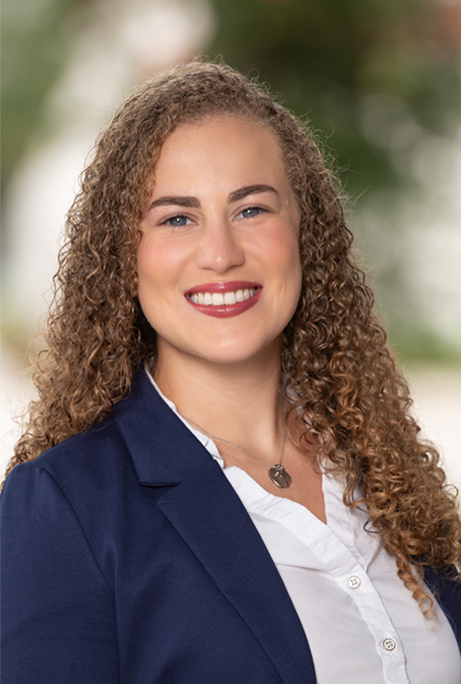Accident Report Privilege
On of the most useful defenses available in a DUI case involving a crash is the “accident report privilege.” Florida law contains a special statutory provision that information provided during an accident investigation is privileged and cannot be used at trial. The protection even extends to a probable cause determination during a motion hearing.
In Florida, the accident report privilege is a creature of statute. Florida law provides:
“[E]ach crash report made by a person involved in a crash and any statement made by such person to a law enforcement officer for the purpose of completing a crash report required by this section shall be without prejudice to the individual so reporting. Such report or statement may not be used as evidence in any trial, civil or criminal.”
See § 316.066(4), Fla. Stat. (2012): see also Wetherington v. State, 1D13-1327 (Fla. 1st DCA Apr. 16, 2014)(recently reversing a conviction for felony driving under the influence because the court, over objection, allow a law enforcement officer to testify that during the traffic investigation the defendant identified himself as the driver of the crashed vehicle).
In Vedner v. State, 849 So.2d 1207, 1212 (Fla. 5th DCA 2003), the court held that “statements made pursuant to the requirement to give information for a crash report required by section 316.066 may not be used as evidence in civil, criminal or administrative proceedings.”
As Professor Ehrhardt explains:
The purpose of the accident report privilege is to encourage people to make an accurate report of the circumstances surrounding an accident so that the state can use the information to make the highways safer. The legislature has made the decision that in both criminal and civil actions, it is better that statements made by a defendant not be introduced before the jury than to restrict the goal of safer highways for society.
Section 316.066 compels a report when there is total apparent damage of at least five hundred dollars or if a person dies or suffers bodily injury or death. The Florida legislature has recognized the constitutional mandate against self-incrimination and immunized the report and any accompanying statements from use against the person making them.
Florida Evidence § 501.2 (West 2012 ed.).
Practical Impact of the Accident Report Privilege
The Accident Report Privilege essentially grants immunity to the person making the statement during the crash investigation. The officer must then “change hats” and tell the suspect that he is now beginning a criminal investigation before statements will generally be admissible.
The officer must say something to the effect of “the accident investigation is over and I am now beginning a criminal investigation for DUI.” The officer must also read Miranda warnings before questioning the driver to ensure that the statements would be admissible during the DUI trial.
In fact, the accident report privilege is “fully operative, unless the statement made by the reporting person during the accident investigation is made after a waiver of Miranda rights or is otherwise not protected by the privilege against self-incrimination.” State v. Marshall, 695 So.2d 719, 722 (Fla. 3d DCA 1996), aff’d, 695 So.2d 686 (Fla.1997); Wetherington v. State, 1D13-1327 (Fla. 1st DCA Apr. 16, 2014).
Under Florida law, after a crash involving property damage, personal injury, serious bodily injury, or death, the driver is required by statute to give his name, address, license number, and registration documents to the officer. The driver is also required to provide a statement and submit written reports.
In order to make sure that compliance with this statute did not violate the driver’s constitutional protections against self-incrimination, the legislature essentially designated these statements to be “privileged” or not admissible during probable cause determinations, motion hearings or at trial.
Protections for the Accident Report Privilege
The accident report privilege essentially provides the following protections:
- Admissions or statements made during an accident investigation pursuant to Florida Statute Section 316.066 may not be used as evidence in an administrative hearing or during a civil or criminal trial; and
- The officer must read Miranda warnings if during the course of the investigation the officer starts asking questions or gives any indication that the driver is required to give information.
The accident report privilege is more adkin to a type of immunity because the statements are not even admissible for impeachment purposes (which is the case for statements obtained in violation of Miranda or the right to counsel).
Contact a DUI defense attorney at the Sammis Law Firm in Hillsborough County, Florida, to discuss this important defense that can lead to the exclusion of evidence, particularly incriminating statements that could later be used to show impairment or who was driving the vehicle at the time the accident occurred.
Free Consultation
Submit this form to request a free and confidential consultation with one of our attorneys.
Our Office Locations
Tampa Office:
Sammis Law Firm, P.A.
1005 N. Marion St.
Tampa, FL 33602
(813) 250-0200
New Port Richey Office:
Sammis Law Firm, P.A.
7509 Little Rd.
New Port Richey, FL 34654
(727) 807-6392
Clearwater Office:
Sammis Law Firm, P.A.
14010 Roosevelt Blvd. #701
Clearwater, FL 33762
(727) 210-7004
- Formal Review Hearing
- Refusal
- Breath Test
- Blood Test
- Urine Test
- Actual Physical Control
- Crash Report Privilege
- Drug
- DUI Setup
- Duress
- Entrapment
- FSE
- Inoperable Vehicle
- Intervening Cause
- Involuntary Intoxication
- Jury Instructions
- Miranda Warnings
- Necessity
- No Driving
- Roadblock or Checkpoint
- Roadside Agility Exercises
- Saturation Patrols
- Speedy Trial
- Stature of Limitations
- Stop Issues
- Women
- Voluntary Intoxication / Insanity
Our Attorneys












